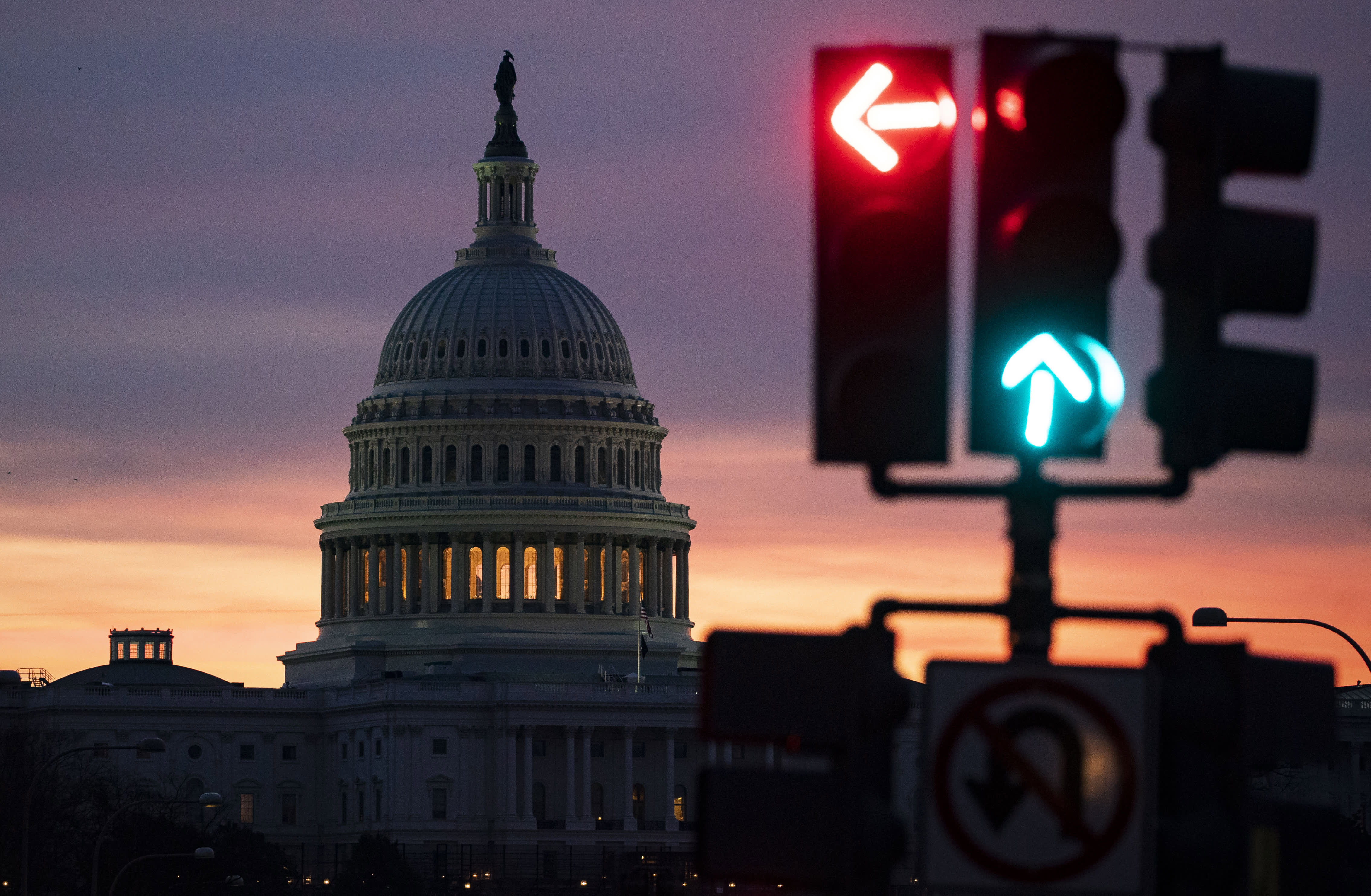
The U.S. Capitol in Washington, D.C., U.S., on Monday, Jan 31, 2022.
Al Drago | Bloomberg | Getty Images
Republican-led super PACs outraised their Democratic rivals in the latter half of last year, giving them more financial firepower ahead of this year’s congressional midterm elections.
Democrats have a slight majority in both houses of Congress, and Republicans are gearing up to potentially flip the Senate and the House in the midterms.
The Republican-affiliated Senate Leadership Fund and Congressional Leadership Fund raised over $90 million combined in the back half of 2021, according to Federal Election Commission records. The two groups, which aren’t connected, had a total of over $100 million on hand coming into this year.
On the Democratic side, the House Majority PAC and Senate Majority PAC, which are not affiliated with each other, raised a total of over $65 million and had a combined $70 million-plus on hand, records show.
These PACs can raise and spend an unlimited amount of money. The FEC disclosures don’t reflect how much was raised by affiliated nonprofit organizations.
The GOP’s comparative fundraising success represents another hurdle for Democratic leaders and candidates, particularly as the party’s agenda has stalled. The president’s party also typically lose seats in Congress during midterm elections.
Some of the party’s top donors have privately told leading Democrats, including House Speaker Nancy Pelosi, D-Calif., and Senate Majority Leader Chuck Schumer, D-N.Y., that they will not be donating any more money while President Joe Biden’s $1.75 trillion social and climate spending package remains unpassed in Congress, according to people with direct knowledge of the matter. These people declined to be named in order to speak freely about private Zoom conversations.
While the House did pass the legislation, known as the Build Back Better Act, the bill has stalled in the Senate. Sen. Joe Manchin, D-W.Va. effectively killed the measure when he said in December that he wouldn’t support it. The Senate is split 50-50, and would need Manchin’s vote to pass it.
A Pelosi aide denied that the House speaker has heard such a threat from donors. “Simply untrue. Not aware of any donor communicating that,” the aide told CNBC in an email on Tuesday.
A representative for Schumer did not return a request for comment before this story was published.
Background support
The top contributions to the Republican-backed Senate Leadership Fund in the second half of last year included a $14 million donation from nonprofit One Nation. Like the Senate Leadership Fund, One Nation is run by allies of Senate Minority Leader Mitch McConnell, R-Ky.
Citadel CEO Ken Griffin gave $5 million to the Senate Leadership Fund and another $10 million to the Congressional Leadership Fund. Fossil fuel giant Chevron and the Koch industries, which is owned by the libertarian-leaning Koch family, each gave $500,000 to the Congressional Leadership Fund.
Nonprofits also cut big checks for Democratic PACs.
House Majority Forward and Majority Forward, two nonprofits affiliated with the Senate Majority PAC and the House Majority PAC, combined to give over $12 million to the groups.
Other recent top donors to the House Majority PAC include Silicon Valley investors Reid Hoffman, who gave just over $1.4 million, and Ron Conway, who doled out $250,000 in the final months of 2021. Chicago businessman Fred Eychaner donated $4 million to the Senate Majority PAC.
The nonprofits who funded the GOP and Democratic super PACs last year do not publicly disclose their donors.
Republican financiers, meanwhile, said their networks are enthusiastic as Election Day approaches.
Eric Levine, an attorney who is is raising money for several Senate Republicans, told CNBC that GOP-leaning business executives in particular primarily consider the midterms as potential a check on Biden.
“It stops his agenda,” Levine said of a potential Republican takeover of Congress.




